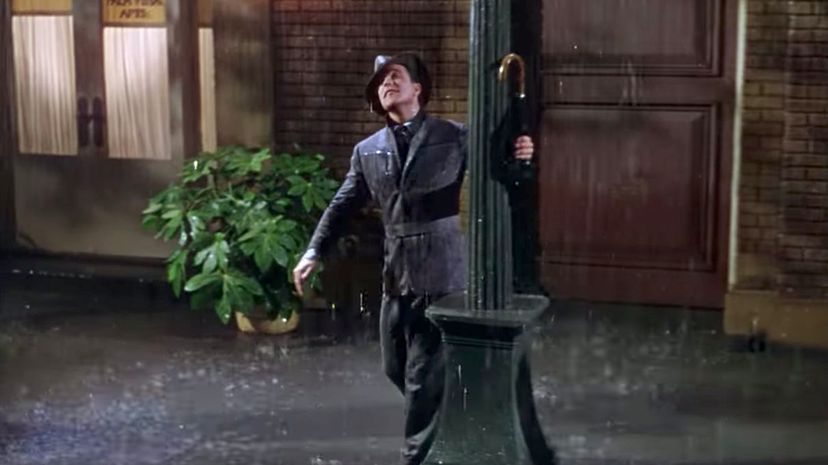
About This Quiz
You don't have to go "Somewhere Over the Rainbow" to know all these movie musicals by looking at a picture of them. You just have to make like Peter Pan and channel your inner child. Awaken the part of you that comes alive when the theme song of your favorite starts playing, and see how many of these classics you can guess from a tiny glimpse and a question during this quiz. And satisfy your urge to break out into song by getting them all right.
From the pre-Golden Age until now, there has been a stunning array of Broadway hits turned into silver screen classics. You might be the biggest musical buff you know, but do you know enough to name all 40 of them without hearing a note? Will you be able to decipher your Von Trapps from your Banks families from only a single image?
As you go through this quiz, pay close attention to both the photo and the question. Only a true musical movie buff will manage to name them all, but you wouldn't be here if you weren't an expert, right? Don't get too caught up in the lyrics in your head to answer, but please sing them out loud if you do. Will get every image right, or do you have some binge watching to do?
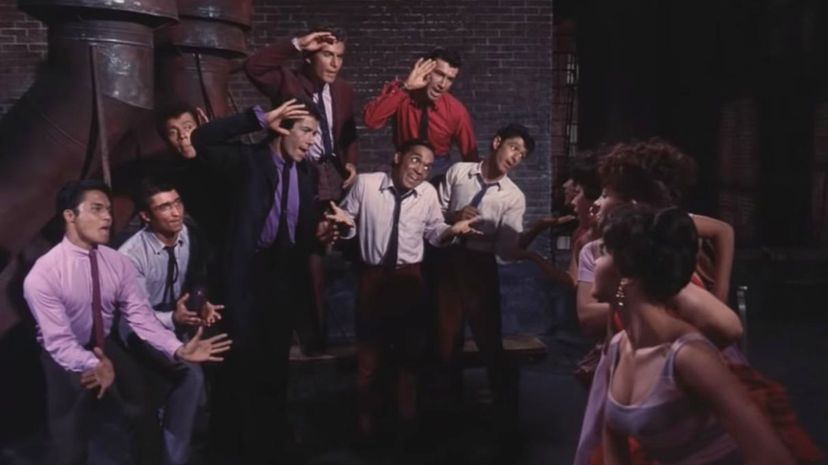
"West Side Story" went from being an Arthur Laurents book to a smash movie musical. When it was released in 1961, it shattered previous musical box office records by bring in over $44 million.
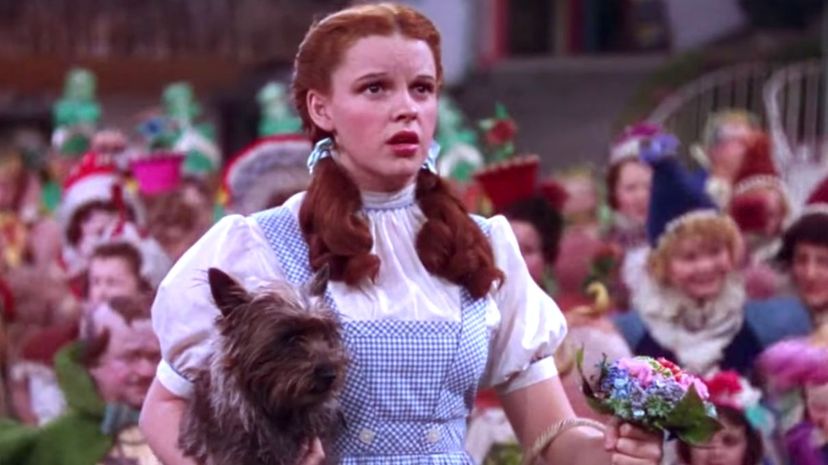
"The Wizard of Oz" was first released in 1939, and it made full use of Hollywood's transition from black and white to technicolor. Although it took 10 years for the film to be recognized as a classic, it still wasn't an easy job — both CBS and NBC had to help bolster its ratings.
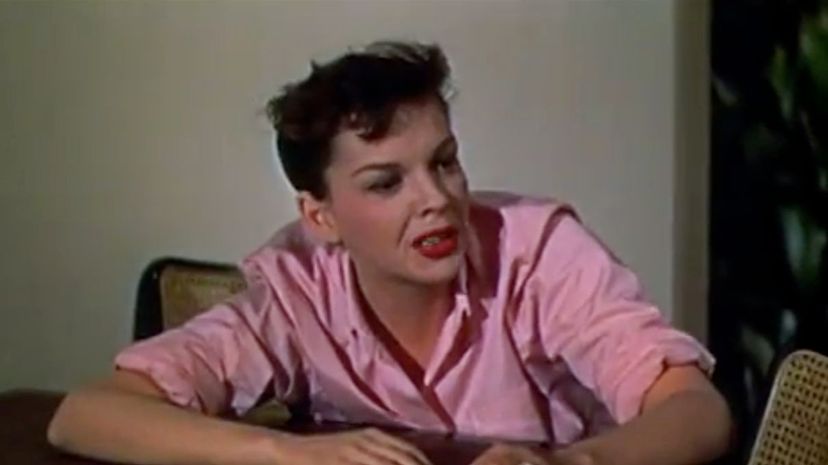
"A Star is Born" was originally put on stage in 1937, but the 1954 version with Judy Garland is the one most people associate with the Golden Age. Despite being one of her last films, it didn't perform well at the box office. It never made a profit until Barbra Streisand took the role in 1976.
Advertisement
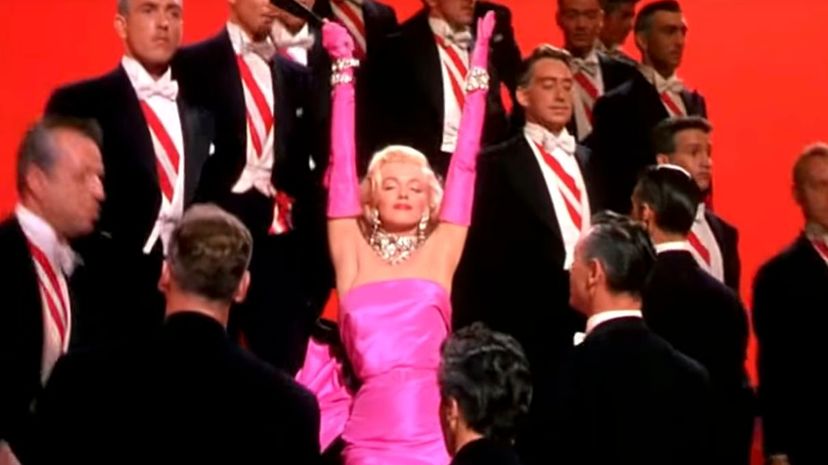
Grossing $5.3 million at the box office, "Gentlemen Prefer Blondes" was an instant hit. When Lorelei and her friend Dorothy take a cruise, hijinks ensue as they try to shake the detective hired by Lorelei's future father-in-law. Full of cheeky lines and memorable songs, it defines the Golden Age.
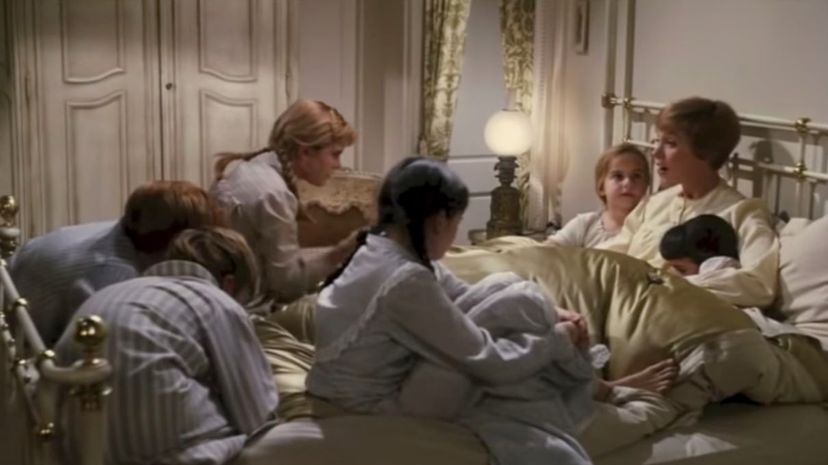
No matter what they did after it, Julie Andrews and Christopher Plummer will always be remembered for their performances in "The Sound of Music." Its 1965 release and subsequent sales would add up to over $2.4 billion dollars in today's money.
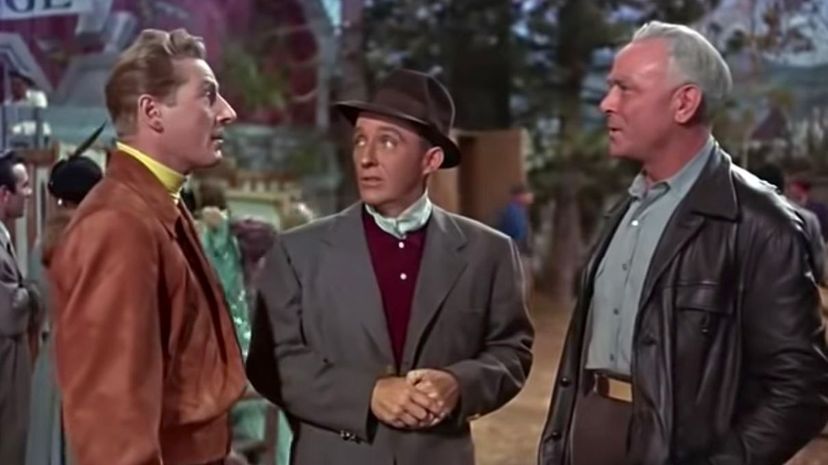
Directed by Michael Curtiz in 1954, "White Christmas" broke all the box office records! Raking in over $30 million, part of the sentimental film's appeal was a new way of delivering the picture to the screen. Shot in VistaVision, it was the first to use a wider aspect ratio.
Advertisement
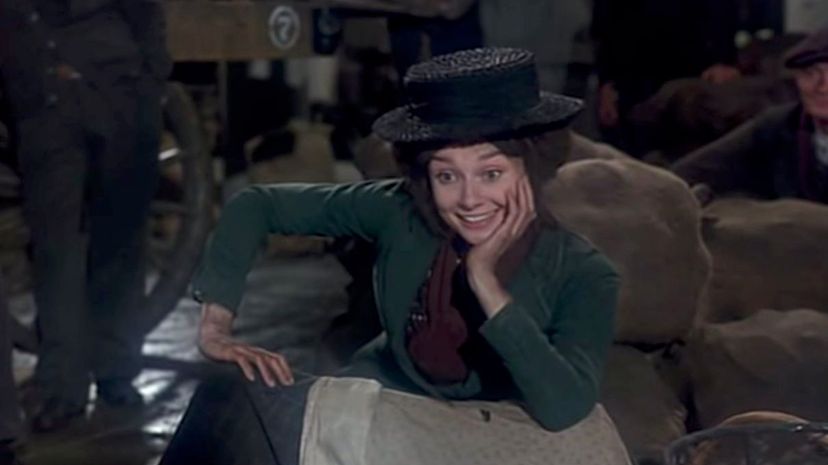
In 9164, Jack Warner of Warner Bros. Studios took it upon himself to adapt the Broadway version of "My Fair Lady" for the big screen. Based on George Bernard Shaw's "Pygmalion," it tells the gritty tale of love across the construct of social classes.
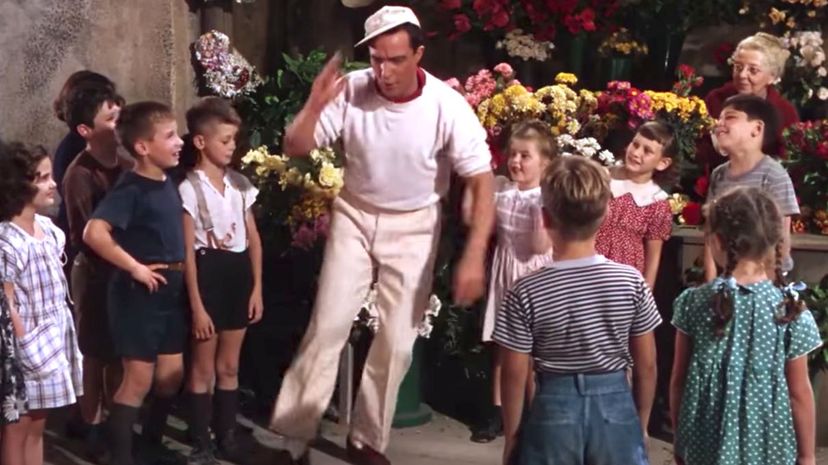
"An American in Paris" took the 24th Academy Awards by storm when it took home six different awards. Starring Gene Kelly, the musical told the tale of wayward strangers finding love — and don't forget the dance numbers! The film is famous for its 17-minute long dance scene.
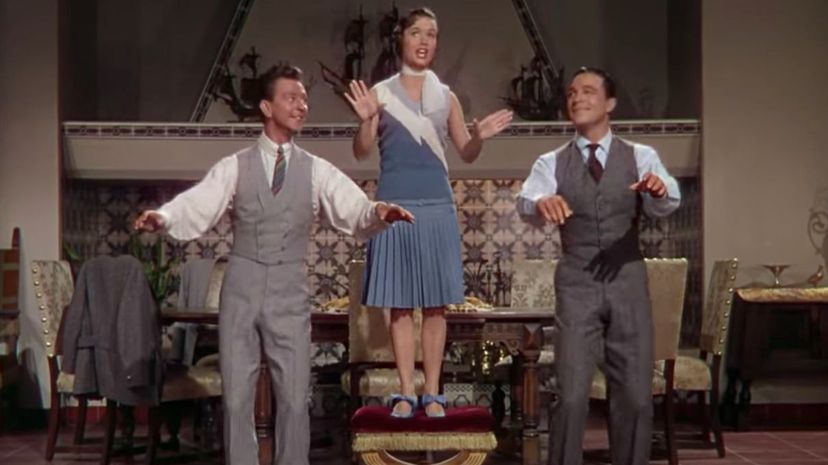
Raking in over $12 million for Metro-Goldwyn-Mayer, "Singin' in the Rain" is features Don and Lina's transition from silent films to musicals. When Lina's voice failed to make the cut, Debbie Reynolds (Kathy) was brought in to sing for her. No matter what, the show still went on.
Advertisement
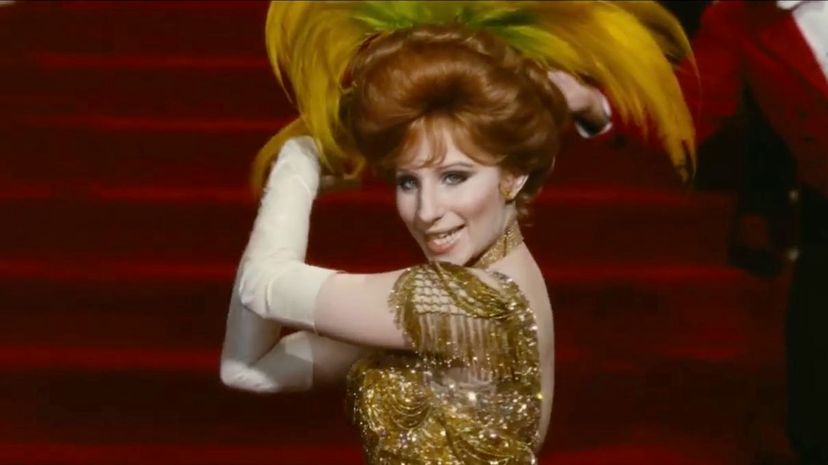
"Hello, Dolly!" was given a film budget of $25 million, and it was worth every penny. Streisand's portrayal of Dolly Levi, captivates audiences as a matchmaker and a smooth mover. Hilarity ensues as she tries to pull herself further up the social ladder.
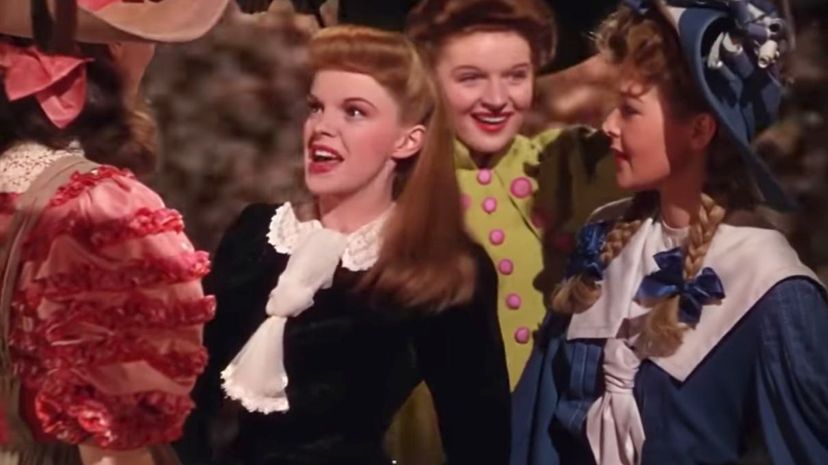
Judy Garland and director Vincente Minnelli walked down the aisle after "Meet Me in St. Louis" was released. It kicked off a string of five musicals the couple created together, but Garland wasn't always happy about the role of Esther. She once had her mom talk to producers about her dislike for it.
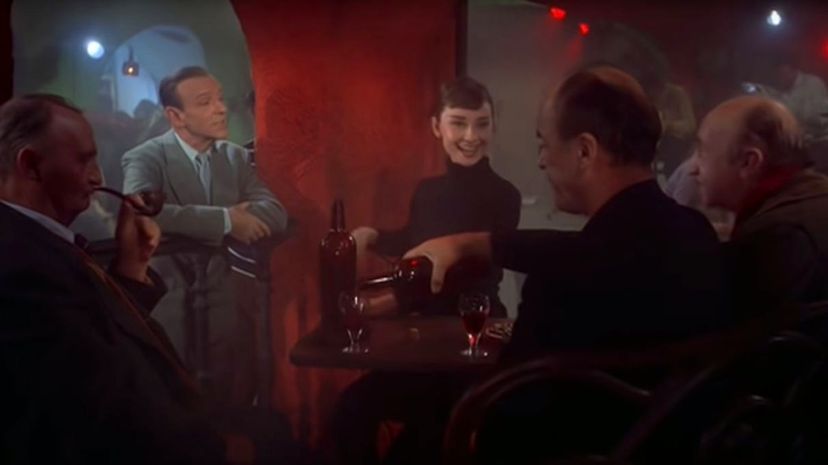
"Funny Face" starred Audrey Hepburn and Fred Astaire, but it didn't do as well as hoped at the box office. The $2.5 million it brought in was pennies compared to other films of the time. Despite its meager success, it's still considered a classic.
Advertisement
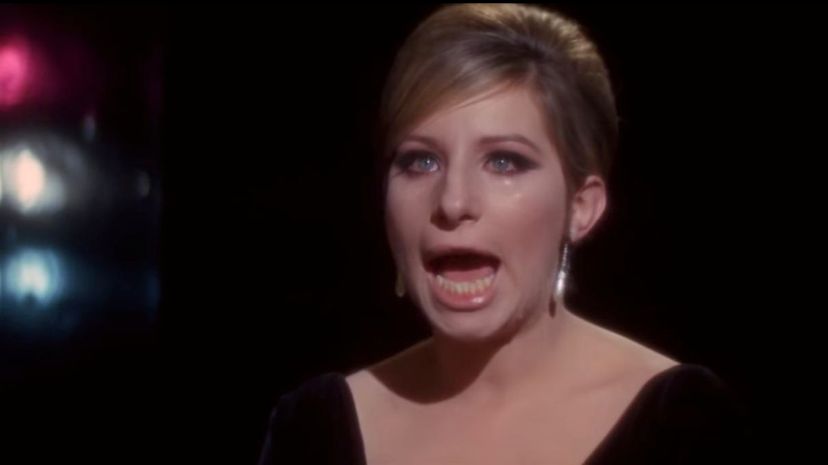
Based on the book written by Isobel Lennart, "Funny Girl" was brought to life on the screen in 1964. Starring Barbra Streisand as Fanny, it tells the story of Fanny's life trying to rise through the entertainment ranks. Both funny and endearing, it will always be considered one of Babs' best films.
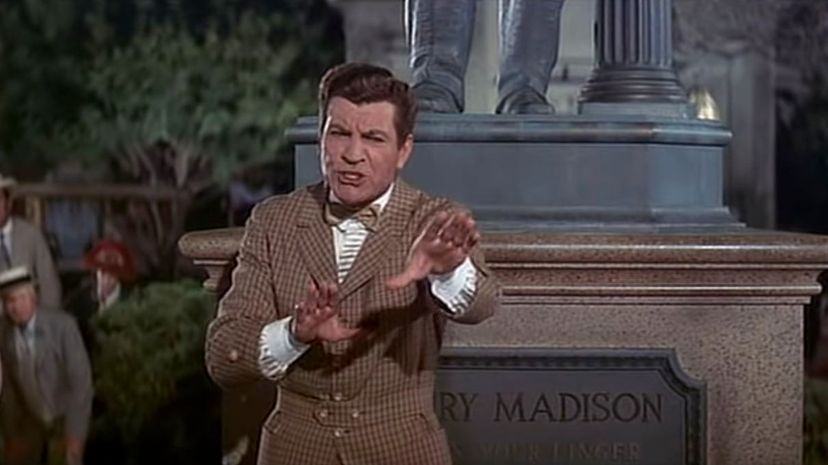
"The Music Man" started out on Broadway in 1957. By 1962, it was storming the box office. The story of a con man who falls in love while trying to convince locals to buy uniforms for a fictitious band, the movie version was recreated in 2003.
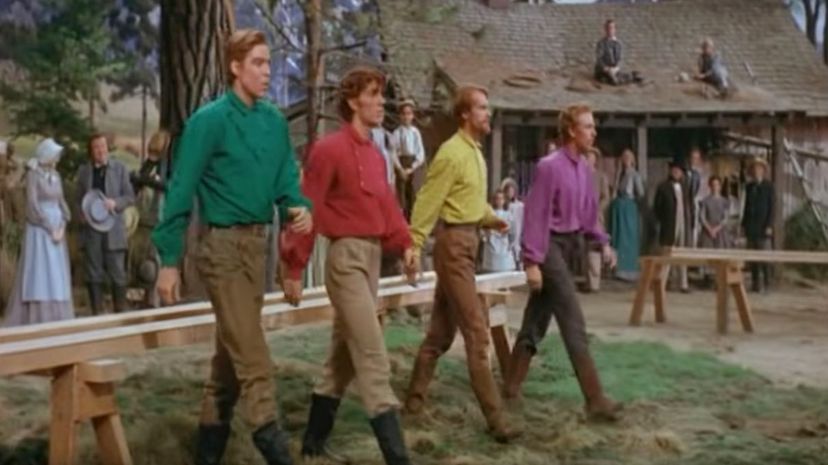
Millie had a lot on her hands when she married Adam and moved in with his six brothers. Using CinemaScope to film, the movie took on a vibrancy that hadn't been seen in 1954. Add the cinematography to the exciting dance numbers like "Barn Raising," and it's easy to see why it was such a smash.
Advertisement
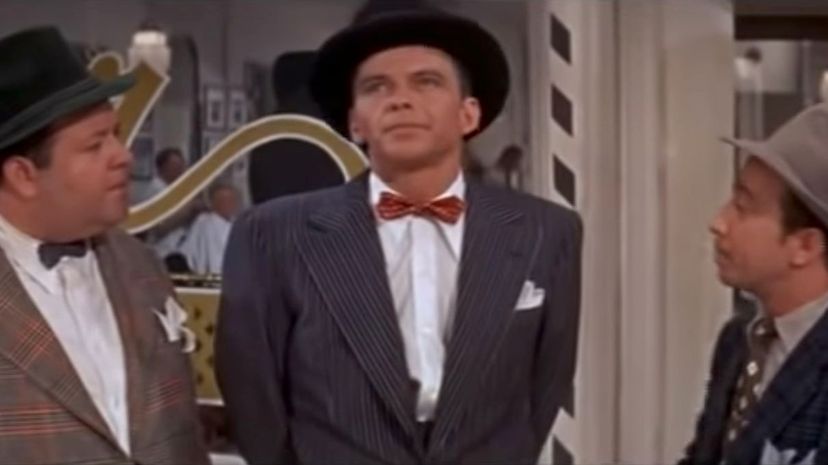
When "Guys and Dolls" opened on Broadway in 1950, it was such a smashing success. It ran for 1,200 straight shows! Released in 1955, the movie version featured Hollywood giants like Marlon Brando and Frank Sinatra.
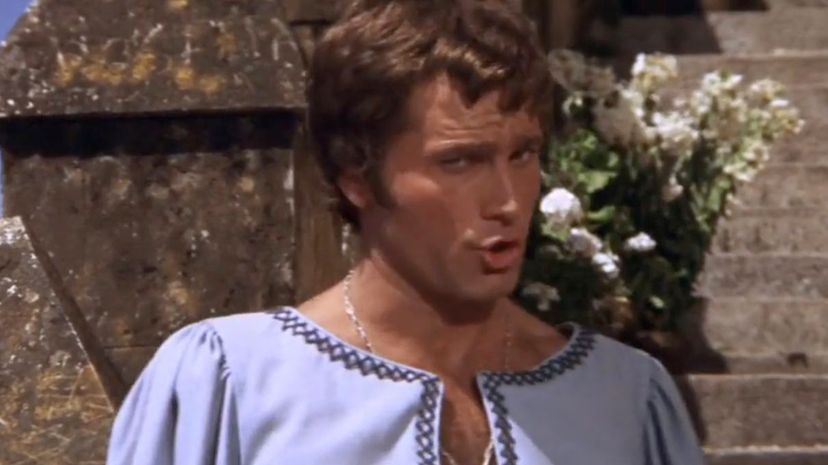
When Joshua Logan took "Camelot" to the big screen in 1967, he was hoping for something a little grander. He felt that the film would be better shot in one of England's castles, but producers thought otherwise. It was actually filmed in a Hollywood lot.
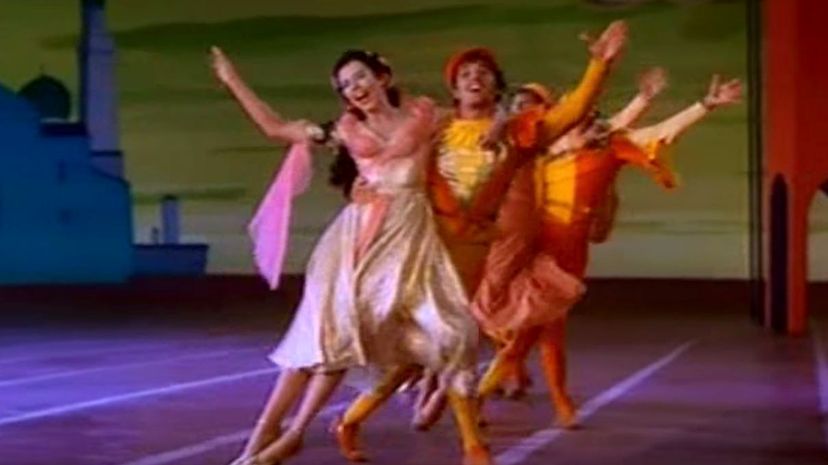
Five years after "Kiss Me, Kate" debuted on Broadway, Metro-Goldwyn-Mayer released the film adaption in 1953. With music by Cole Porter and Shakespeare's influence, it's a timeless classic that enjoyed another Time's Square revival in 2019.
Advertisement
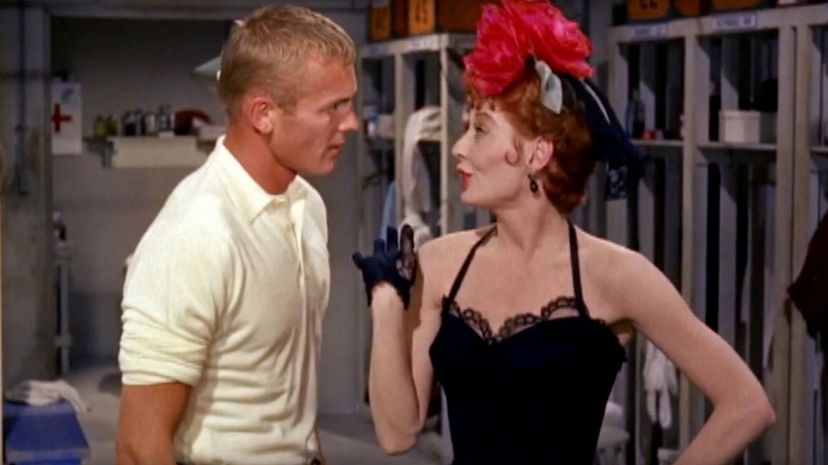
Like most baseball fans, Joe Boyd wanted his team, the Senators, to win so badly that he sold his soul to become part of the game. The hilarious "Damn Yankees" enjoyed Broadway success starting in 1956, but the 1958 film version was just as successful.
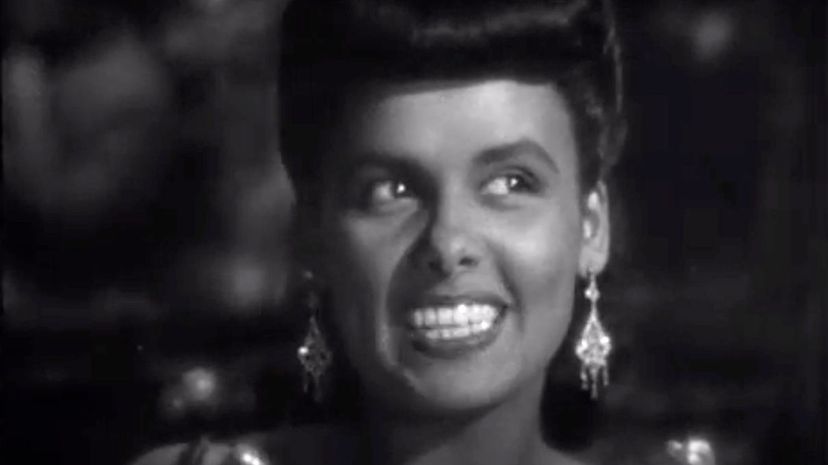
Director Vincente Minnelli made his directorial debut with 1943's "Cabin in the Sky." The first studio film to feature an all African American cast, it wasn't permitted to be played in certain parts of the United States. Despite its limited release, it went on to receive an Academy Award nomination.
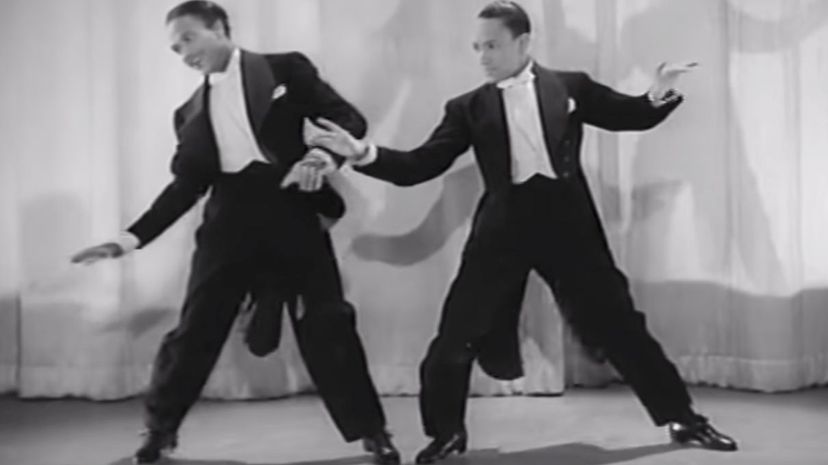
After the success of "Cabin in the Sky," producers wanted to try another all African American musical. Starring Lena Horn and the Nicholas Brothers, Fred Astaire considered the production one of the best musical numbers he had ever seen.
Advertisement
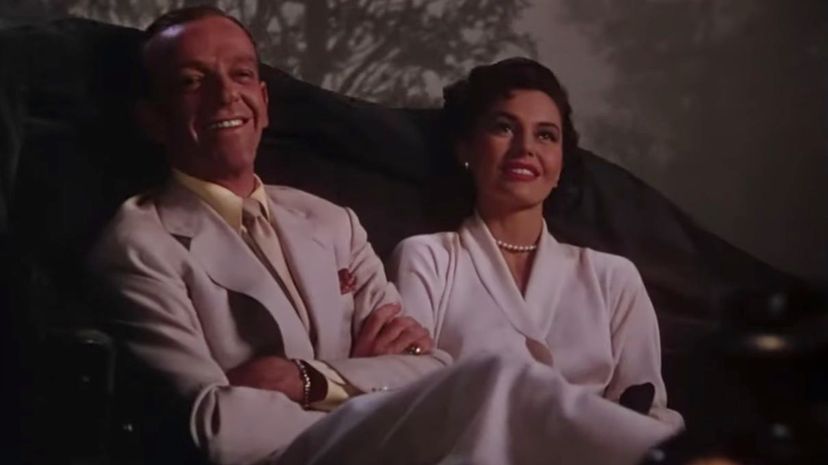
Loosely based around the life of star Fred Astaire, director Vincente Minnelli made a casting choice that made some scratch heads. Since the storyline in "The Band Wagon" called for a couple with a large age gap, he hired Cyd Charrise for the role of Gaby. She was 23 years younger than her co-star.
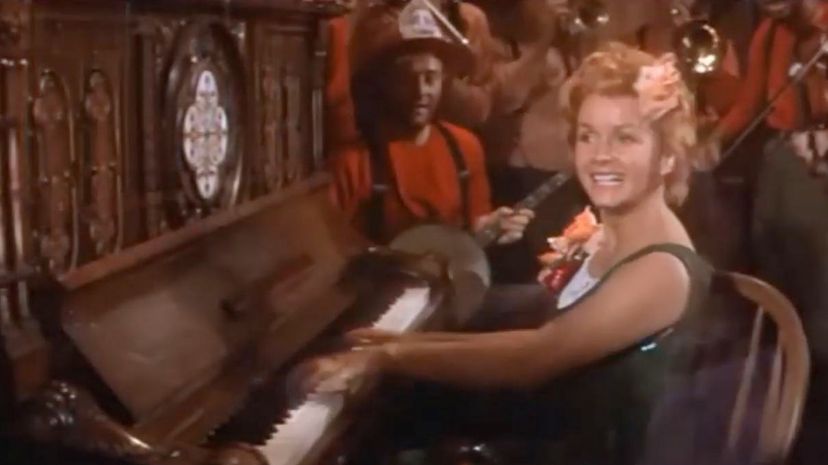
Based on a book of the same name, "The Unsinkable Molly Brown" explores the ups and downs of Molly and Johnny Brown's marriage. Sent to the big screen in 1964, it grossed over $11 million while telling the story of Molly's ill-fated trip on the Titanic.
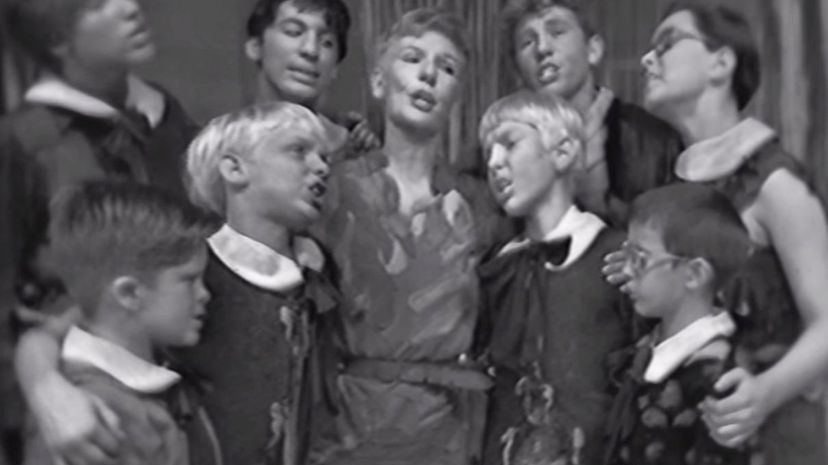
"Peter Pan" is based on a play of the same name that dates all the way back to 1907. In 1954, Mary Martin got to take her turn playing the iconic character. It's only 60 minutes long, but audiences refuse to grow up and watch it again and again.
Advertisement
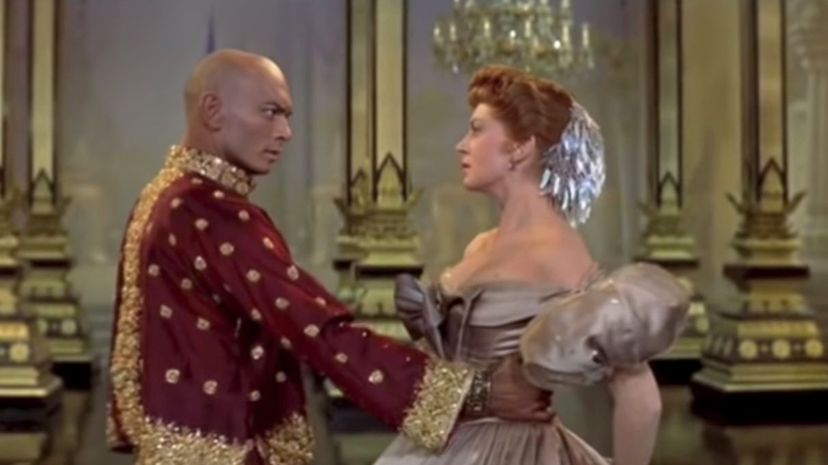
During its first year on Broadway, "The King and I" earned its lead actors Tony Awards for best actor and actress. Both Yul Brenner and Deborah Kerr picked up the torch and delivered scorching performances when it was adapted for the theater. They were also awarded for their work.
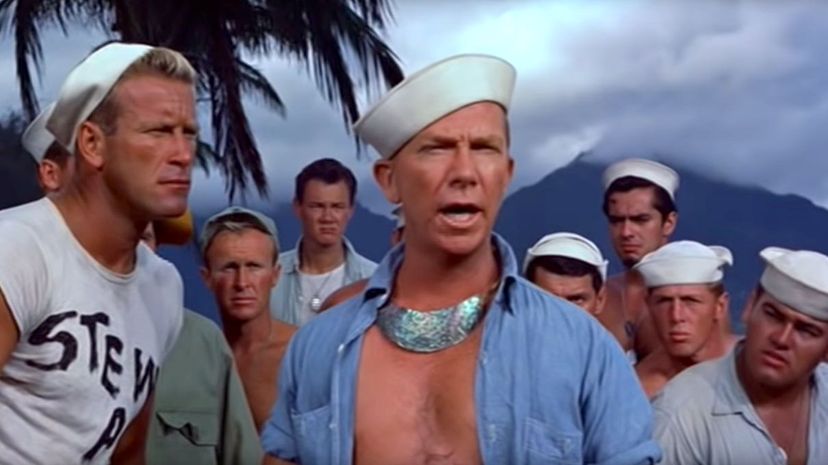
"South Pacific" started life as a Rodgers and Hammerstein production, but it was made into a movie by the legendary Joshua Logan. Staring Mitzi Gaynor, John Kerr, and Juanita Hall, it's packed with tales of love, heartbreak, spies and the people you call family.
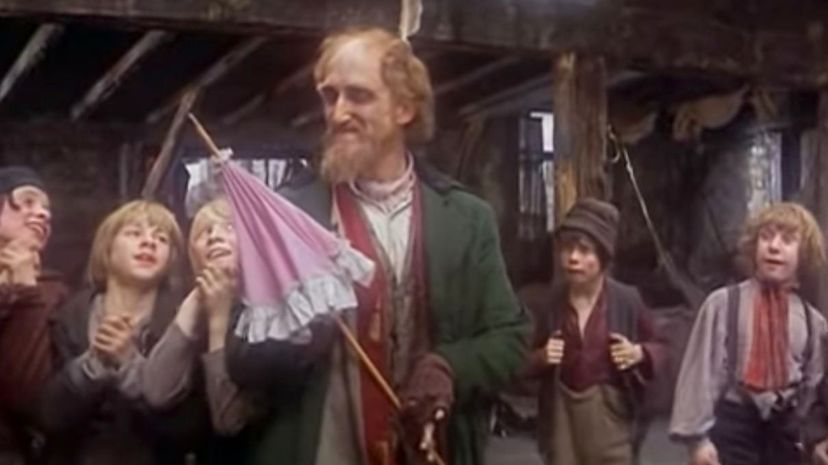
Modeled after the Dickens classic "Oliver Twist," "Oliver!" hit the screen in 1968. Filmed on a budget of $10 million, the British film, directed by Carol Reed, received the Academy Award for best picture.
Advertisement
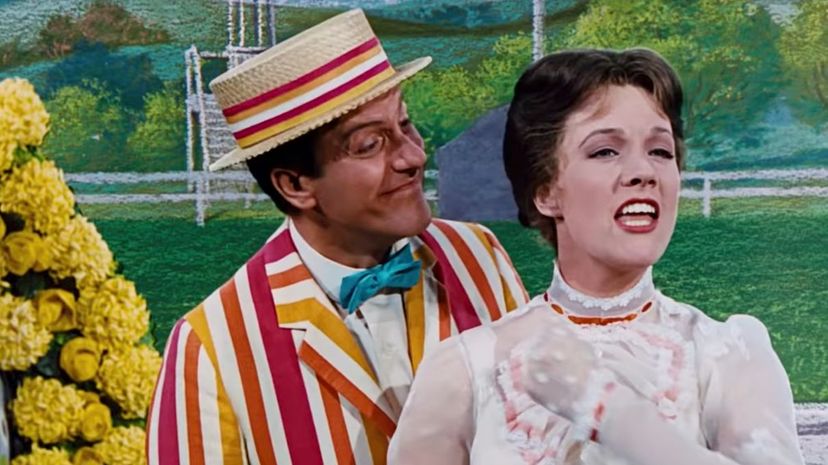
Box office records show that 1964's "Mary Poppins" raked in over $103 million at the box office. As the high-flying nanny, Julie Andrews expertly delivered her acting and her singing skills. Although many are bigger fans of "The Sound of Music," others say that "Mary Poppins" was her best work.
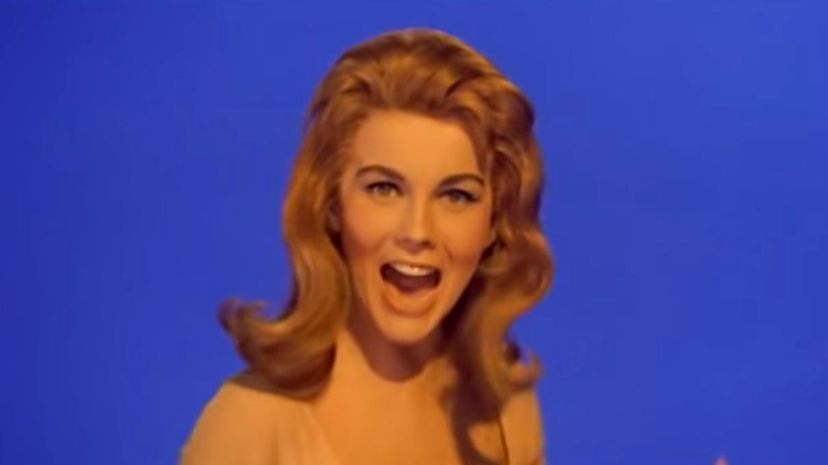
"Bye, Bye Birdie" hit Broadway in 1960, but producers were quick to snatch it up. In 1963, the film version flawlessly told the story of a songwriter without a band and the young singer who comes to his rescue. The performances were so good that Ann Margaret was nominated for an Academy Award.
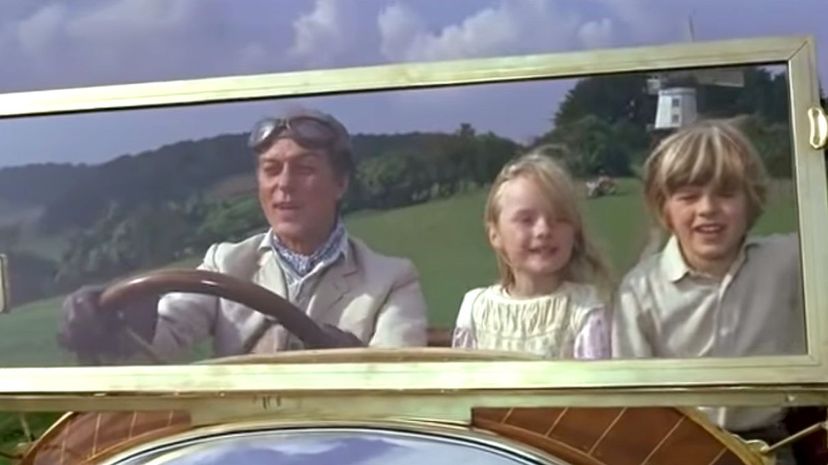
The 1968 film version of "Chitty Chitty Bang Bang" made it such a hit that you can see it on Broadway today! Although the magical story chronicling the adventures of the Potts family started as a children's book, it's musical versions are entertaining for all ages.
Advertisement
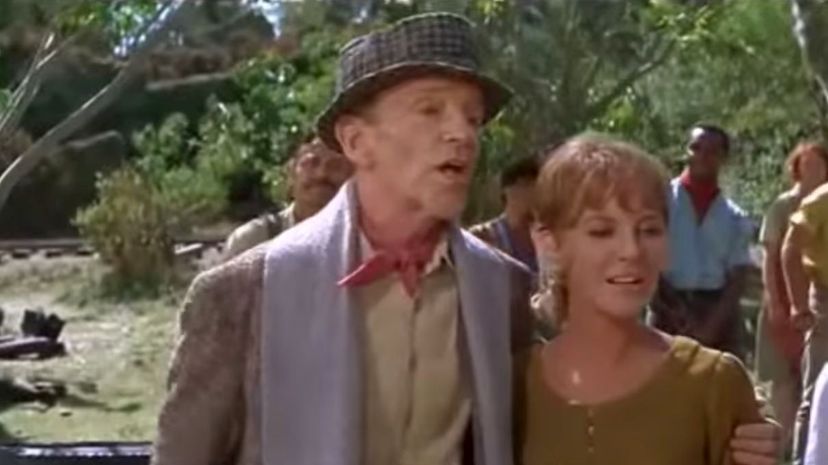
Proving that you never steal gold from a leprechaun, Fred Astaire and Petula Clark brings the story of the McLonergan family to life in "Finian's Rainbow." Although the film didn't perform as well as expected it still earned a litany of nominations, including best actress and best film.
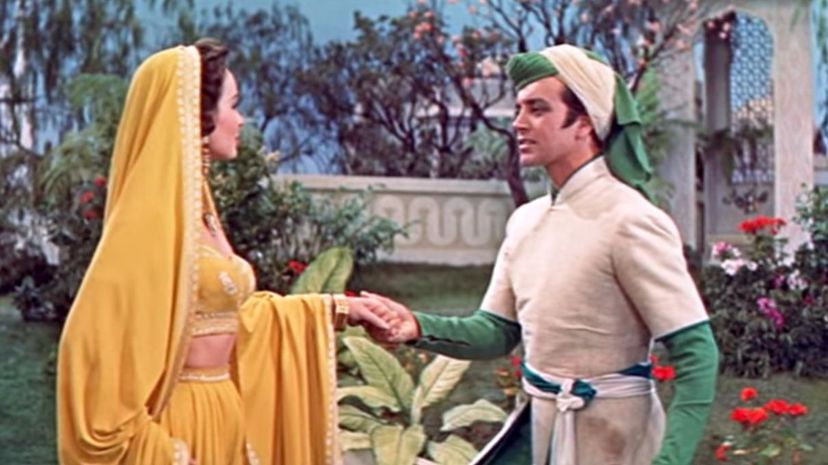
Most people are familiar with Vincente Minnelli's 1955 version of "Kismet," but there are three other versions of the film. Shot on Eastman Kodak film, its colorful appearance wasn't enough to stop it from losing over $2 million after its release.
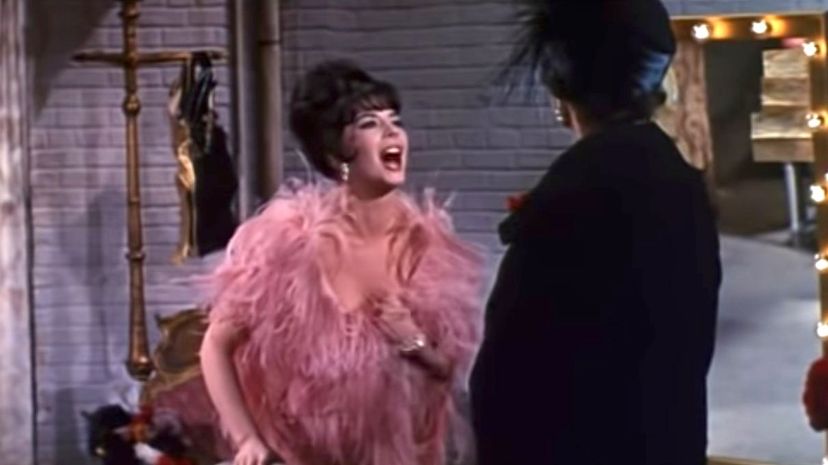
Singer, actress and dancer Gypsy Rose Lee chronicled her life in her 1957 memoir. By 1962, she was watching it come to life on both the screen and the stage. With a cast that included Natalie Wood and Ann Jillian, it brought in over $11 million during its first year.
Advertisement
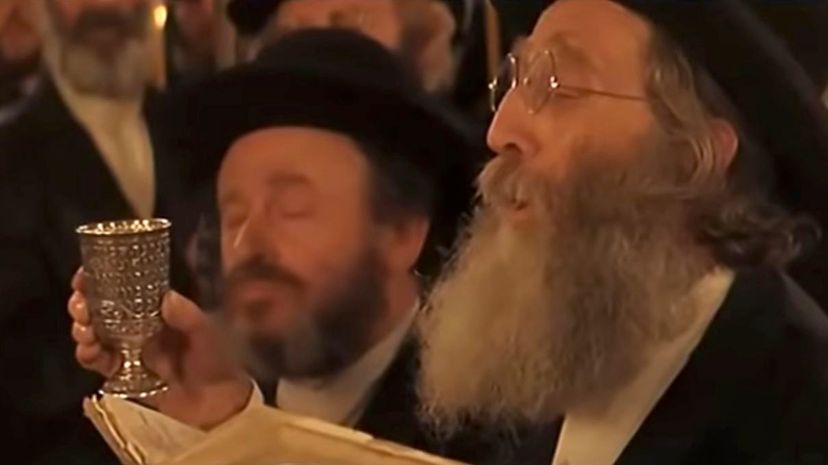
"Fiddler on the Roof" enjoyed a long run on Broadway that started in 1964, but it didn't make it to the big screen until 1971. When it did, it was a roaring success! The story of a father trying to find suitable husbands for his daughters made over $83 million.
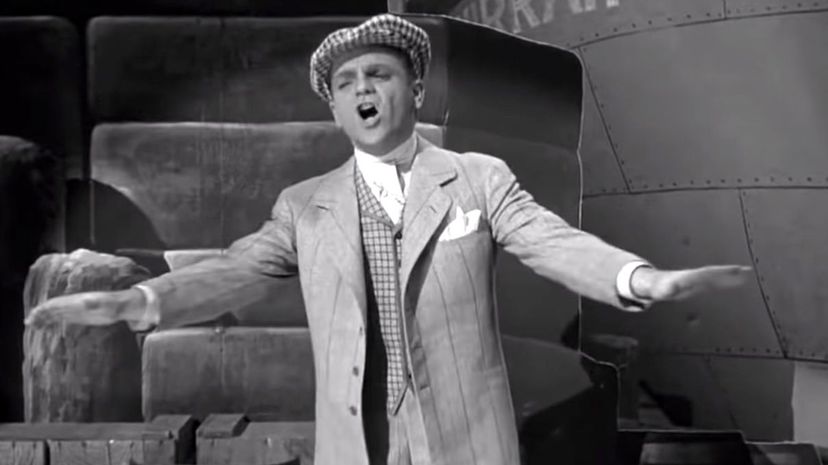
George M. Cohen's "Yankee Doodle Dandy" was autobiographical, and he didn't want just anyone portraying him. James Cagney was chosen by Cohen because he believed that he was perfect for the part, but Cagney had ulterior motives. He took the role to bolster his image after being accused of communism.
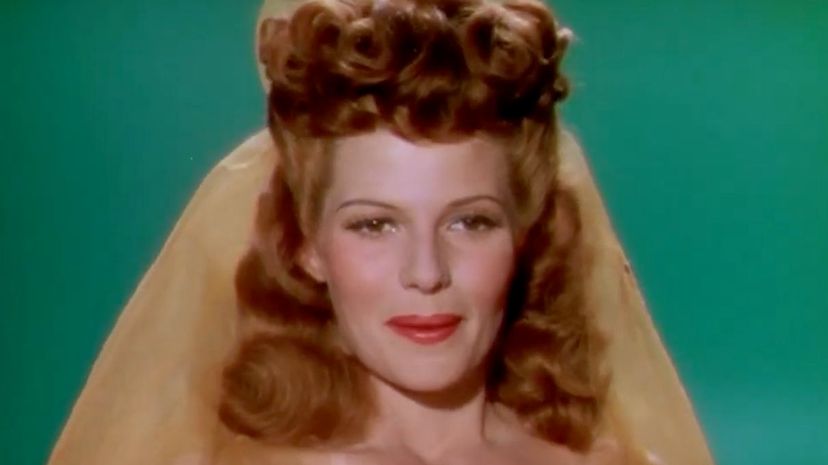
Rita Hayworth's powerful performance in 1944's "Cover Girl" was partly due to the fact that it was the first time Gene Kelly was the lead choreographer. Aside from proving she could hold her own alongside him, she also delivered, what many consider, her finest acting performance.
Advertisement
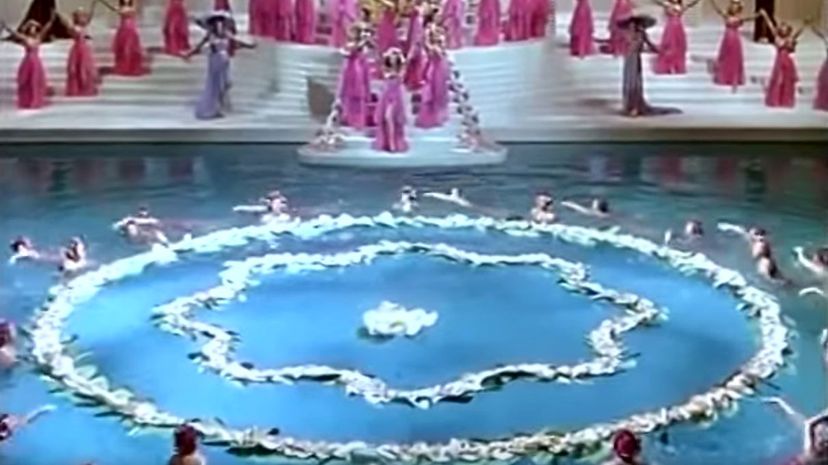
Esther Williams had small parts in other films, but she got her big break in "Bathing Beauty." Filming the musical's finale was a feat of cinematography. Cameras were mounted on cranes to film the set, and a waterproof box was made so that underwater shots could be taken. It was a first!
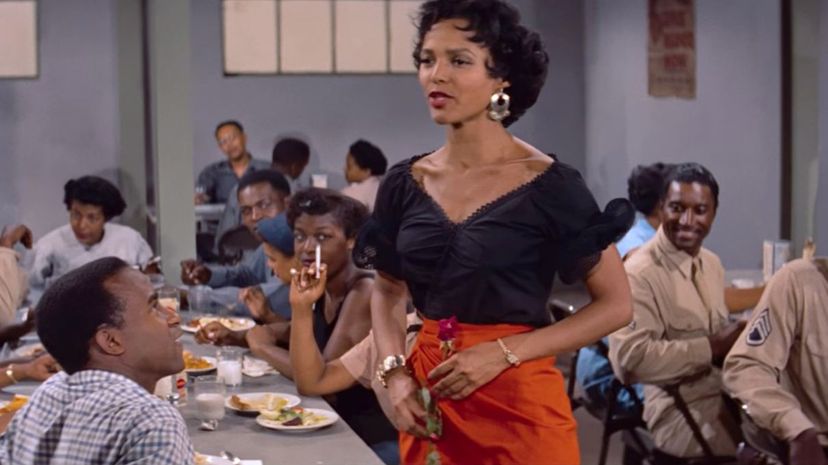
Dorothy Dandridge's performance in "Carmen Jones" led her to become the first African American to receive the best actress nomination. First considered too sweet for the part, Dandridge strutted around producers in character to show them she was capable.
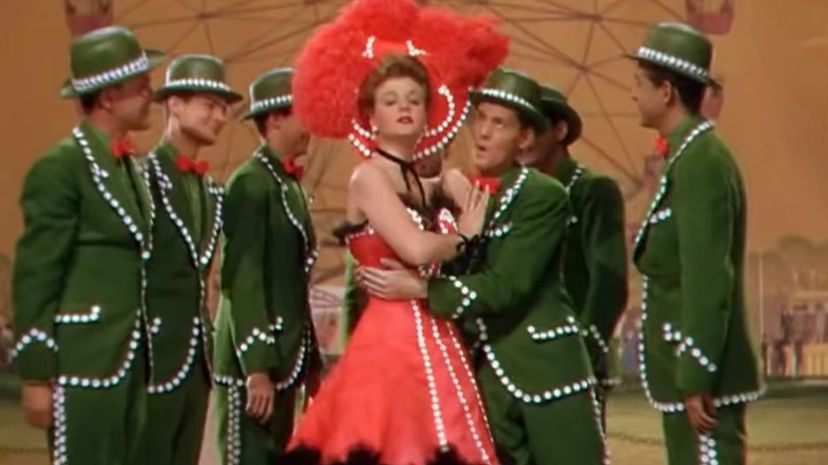
If any Golden Age movie musical had an all-star lineup, it was "Till the Clouds Roll By." Featuring Lena Horne, Judy Garland, Fred Astaire, and an up and coming Angela Lansbury, it received critical praise for the acting and the musical numbers.
Advertisement
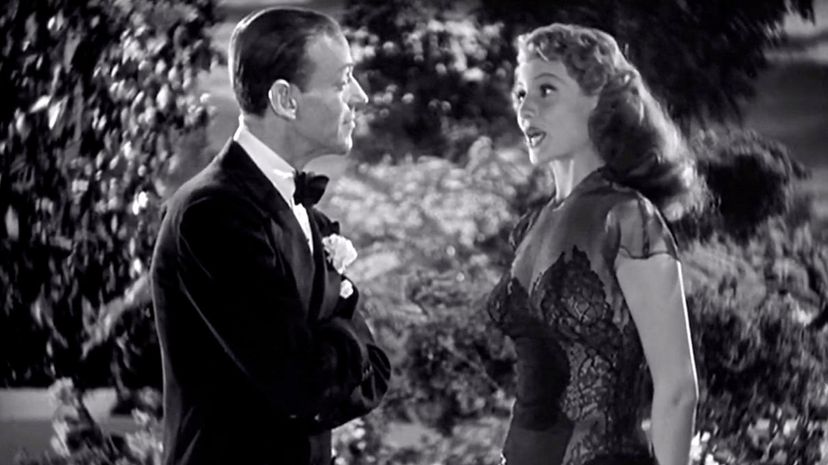
Rita Hayworth's career was blossoming when she took the role of Maria in "You Were Never Lovelier," and her co-star couldn't have been happier about it. The second musical the two made together, Fred Astaire always praised Hayworth's ability to quickly earn dance steps.